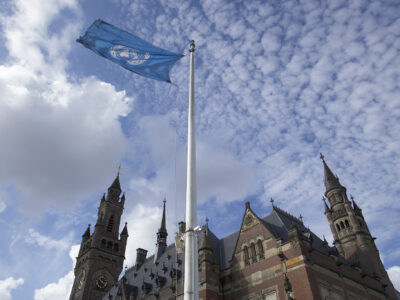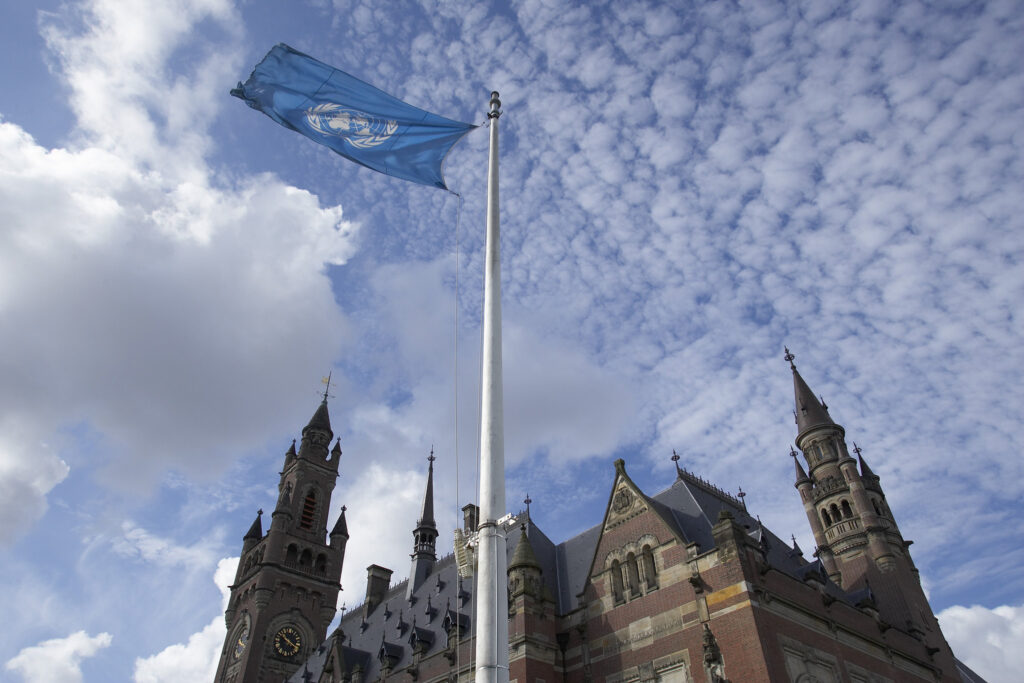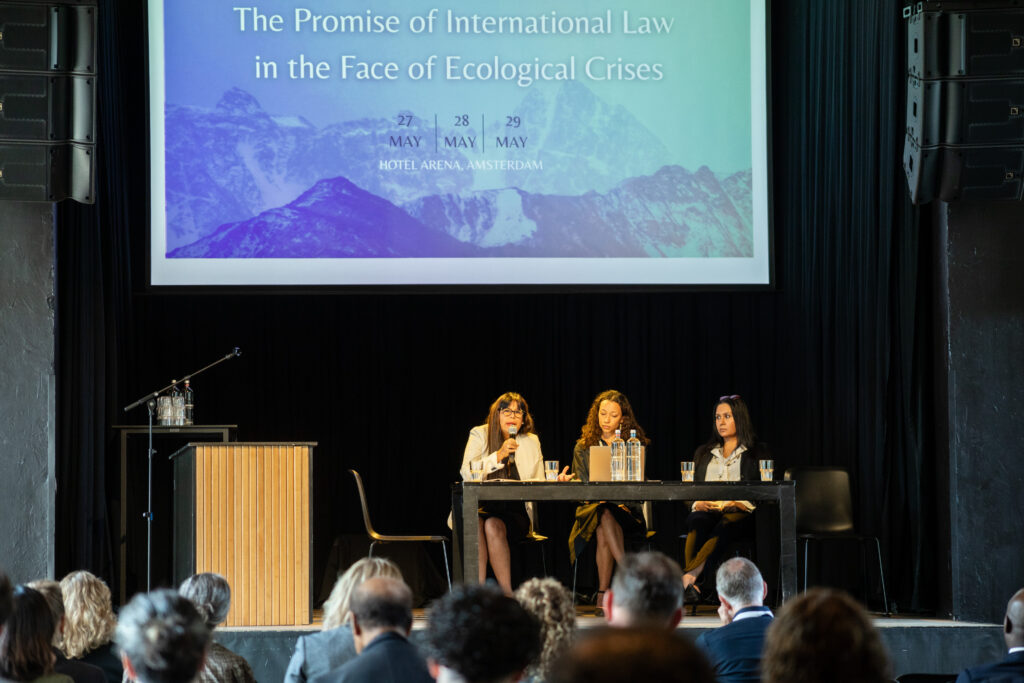What’s at Stake in the ICJ Hearings
Legal Planet: Environmental Law and Policy 2024-12-02


A new chapter of global climate accountability has hopefully begun, as the International Court of Justice (ICJ) prepares to issue an advisory opinion on the Obligations of States in respect of Climate Change. Hearings for that opinion began today with over 100 countries and other parties presenting over two weeks. At the request of the U.N. General Assembly, the ICJ will seek to determine the liability of countries for their contribution to the climate crisis and what mitigation actions are needed. We’ve been tracking the lead up to this ICJ hearing closely.
In June 2024, UCLA School of Law’s Promise Institute Europe hosted its first inaugural conference, The Promise of International Law in the Face of Ecological Crises, shortly after the issuance of a highly anticipated advisory opinion from the International Tribunal for the Law of the Sea (ITLOS). ITLOS issued its advisory opinion in response to requests from the Commission of Small Island States on Climate Change and International Law. Notably, the opinion recognized greenhouse gas emissions as a key driver of global warming and emphasized the obligation of States to reduce these emissions. The hearings leading up to this opinion saw an unprecedented number of oral and written submissions, many of which included personal testimonies from community members in Small Island Developing States (SIDS), detailing the devastating impacts of climate change on their homes and livelihoods.
Attendees at the Promise Conference featured a mix of stakeholders, including community representatives from SIDS, lawyers, researchers, and policymakers, each who contributed to a rich and dynamic dialogue about the future of international climate law. This article explores three central themes that emerged from the three-day long conference: representational sovereignty, indigenous knowledge, and ecocide. These themes not only relate to the ITLOS advisory opinion but are also likely to play a significant role at the ICJ hearings in The Hague.
Representational Sovereignty
For many attendees of the conference, the recently released ITLOS advisory opinion highlighted the importance of representational sovereignty. Representational sovereignty is the right of Indigenous peoples and other marginalized groups to control how their stories are told and to have a voice in how they are represented in the public sphere—whether in the media or in political decision-making processes. At its core, representational sovereignty affirms the right of people to speak for themselves, acknowledging that they are experts of their own lives and are well-positioned to describe their own experiences.
On the final day of the conference, discussions focused on the relationship between “science” and representational sovereignty, particularly how conflicts arise when courts assess what constitutes acceptable data. This became the basis of a lively debate during the “Practitioners’ Forum: Science and the Law – Collaborative Strategies for Future Progress.” Speakers from various organizations argued that definitions of “expertise” and the “best available science” standard often privilege western perspectives, sidelining the lived experiences of those from communities most affected by climate change.
Naima Te Maile Fifita, a panelist at the Conference and a speaker at the ITLOS hearings, testified that people from SIDS “spend so much time suffering and then proving to the world that they should care, and that we have a responsibility to prevent catastrophic harm.” Fifita’s comments underscore a key point: while the ITLOS hearings marked a significant step forward for the representation of SIDS in international law, their historical and systemic exclusion from these spaces highlights the urgent need for a paradigm shift that places representational sovereignty at the center of global decision-making on climate change.
 A panel discussion at UCLA Law Promise Institute Europe’s launch May 2024 conference. L to R: Ms. Monica Feria-Tinta (chair) Ms. Naima Te Maile Fifita Dr. Shobha Maharaj. (Photo by Anisa Xhomaqi)
A panel discussion at UCLA Law Promise Institute Europe’s launch May 2024 conference. L to R: Ms. Monica Feria-Tinta (chair) Ms. Naima Te Maile Fifita Dr. Shobha Maharaj. (Photo by Anisa Xhomaqi)Indigenous Knowledge
Conference speakers also highlighted the necessity of centering Indigenous knowledge in articulating climate harm and deriving solutions to the global climate crisis. Many speakers emphasized the importance of understanding climate losses in terms articulated by those who feel them most strongly, despite contributing to these harms the least: communities across the Global South, residents of SIDS, those who live in and adjacent to resource extraction. As Alofipo So’oalo Fleur Ramsay, an international human rights lawyer with BlueOceanLaw, shared, “I have spoken to Indigenous individuals in the South Pacific who articulate the loss of land as a death.” As Ramsay’s testimony makes evident, the inclusion of Indigenous epistemologies and articulations provides a necessary expansion of the western, colonial conceptions of climate change harms, which may otherwise articulate such harms in removed, flattened, numerical terms that bury the individual, community, and ancestral hurt experienced. Where climate harm is understood in the same capacity and depth as those who experience it most intensely, measures deployed to mitigate and repair the harm can be scaled more appropriately.
At the same time, conference participants urged the adoption of traditional ecological knowledge in deriving best practices in response to the climate crisis, including through scientific monitoring. Traditional ecological knowledge as defined by Winona LaDuke, the Ojibwe activist and economist, is the “culturally and spiritually based way in which indigenous peoples relate to their ecosystems.” Traditional ecological knowledge offers long-term relational knowledge in noting changes to ecosystems and community health. As international human rights lawyer Naima Te Maile Fifita highlighted at the conference: Indigenous science and other Indigenous ways of knowing should be used in conjunction with western scientific monitoring for the best and broadest understanding of how climate change is wreaking havoc on communities across the globe. Similarly, traditional ecological knowledge can be used to mitigate adverse effects of climate change, as has been evidenced by the usage of Indigenous-led controlled fire in California, to mitigate the risk of devastating, uncontrolled, and increasingly common wildfires in the state by reducing underbrush and tree cover.
The role of Indigenous knowledge in describing, monitoring, and combating climate change will hopefully be addressed in the ICJ hearings, as they broach the role of state obligations—including mitigation and monitoring efforts—in face of the climate crisis.
The Crime of Ecocide
Throughout the conference, participants also acknowledged that the international community has long failed to penalize those responsible for environmental damage and devastation. One potential avenue for addressing environmental injustice and climate abuse is the recognition of ecocide as an international crime to demand greater state and corporate accountability from entities responsible for severe environmental damage. The inclusion of ecocide (a term first coined as early as 1970) in international criminal law could not only bridge the existing data gaps, but also contribute to broader efforts of reparative justice for communities most harmed by environmental degradation.
In 1998, the Rome Statute established the core international crimes of genocide, crimes against humanity, war crimes, and the crime of aggression. Despite the magnitude of support for the inclusion of the crime of ecocide, the crime of ecocide was ultimately excluded at the last moment. The omission highlights the anthropocentric nature of international criminal law, which focuses on violations of human rights rather than the protection of ecosystems or the intrinsic value of nature itself. In this context, the recognition of ecocide as an international crime—as a crime that has been codified in so many domestic legal frameworks—could offer both a preventive measure and a pathway to reparations for particularly impacted communities.
In 2021, a significant legal milestone was achieved when a panel of international law experts, who convened at the request of Stop Ecocide International, proposed a working definition for the crime of ecocide:
“Ecocide means unlawful or wanton acts committed with knowledge that there is a substantial likelihood of severe and either widespread or long-term damage to the environment being caused by those acts.”
In September of this year, this definition was formally proposed as an amendment to the Statute by the Pacific Island States of Vanuatu, Fiji and Samoa.
Under international human rights law, particularly the International Covenant on Civil and Political Rights, states are obligated to uphold the right to life and, by extension, the right to a healthy environment. However, the limitations of the current framework and anthropocentric nature of existing international criminal law only permits prosecution when environmental harm directly affects human beings. Despite overwhelming evidence of ecological damage, the direct link to human rights violations has often been necessary for legal action, thereby limiting the scope of the law’s protective potential.
Framing ecocide as an international crime would mark a paradigm shift that could facilitate reparations for past and ongoing ecological violations, as well as potentially preventing future environmental harm—particularly those experiencing the brunt of environmental catastrophe. Reparations could take various forms: compensatory measures for the most-affected communities, the restoration of ecosystems, or penalties imposed on states and corporations responsible for ecological damage. Including ecocide as a fifth crime could hold states and corporations accountable for environmental destruction, and the international community could adopt a more holistic approach to climate justice. Ecocide is one form of reparatory measure that may be discussed at the ICJ hearings, in the spirit of examining how states may address corporate environmental abuse and malfeasance in the context of climate harm.
Starting this morning, you can watch the ICJ hearings live on their website here.
Guest contributors Mollie Cueva-Dabkoski and Julia Phượng Nguyễn are UCLA Law students (3L); Molly-Mae Whitmey is a student in Human Rights and Humanitarian Action at Sciences Po.